This post contains affiliate links for which I may make a small commission to help keep the site running. You will not be charged extra for these items had you not clicked the links. Thank you for your help to keep the site running!
Did you know that English isn’t the only language recognized in the country of Wales?
Welsh is a celtic language that has been around for centuries, and is still used to this day.
As of the most recent survey in December 2020, it is estimated that nearly 30% of the country’s population speaks Welsh.
Over 16% of the population reported that they speak Welsh on a daily basis.
On a holiday in Wales, you’re likely to notice that the road signs are bilingual, with Welsh often featured on the top in North Wales, and English in South Wales.
The Welsh-speaking population is much heavier in North and West Wales than in South Wales, but no matter where you are in the beautiful country of Cymru (Wales), you’re likely to encounter Cymraeg (Welsh).
Whether you’re planning a trip to Wales or you just want to impress your friends with some multilingual skills, this post will walk you through some of the basics of the Welsh language, along with some common Welsh slang you’re bound to hear if you spend time in Wales.
Want more awesome Welsh content? Check out our other guides!
- 11 Charming Destinations along the Wales Coastal Path
- 41 Fantastic Welsh Instagram Captions
- 17 Charming Things to Do in Beddgelert, Wales
- 23 Amazing Things to Do in North Wales
- 9 Incredible Things to Do in Conwy, Wales
Hey! Want more honest UK tips and planning advice? Click here to join my London and UK Travel Tips Facebook group, where I can answer more of your questions!
A Note on Welsh Pronunciation
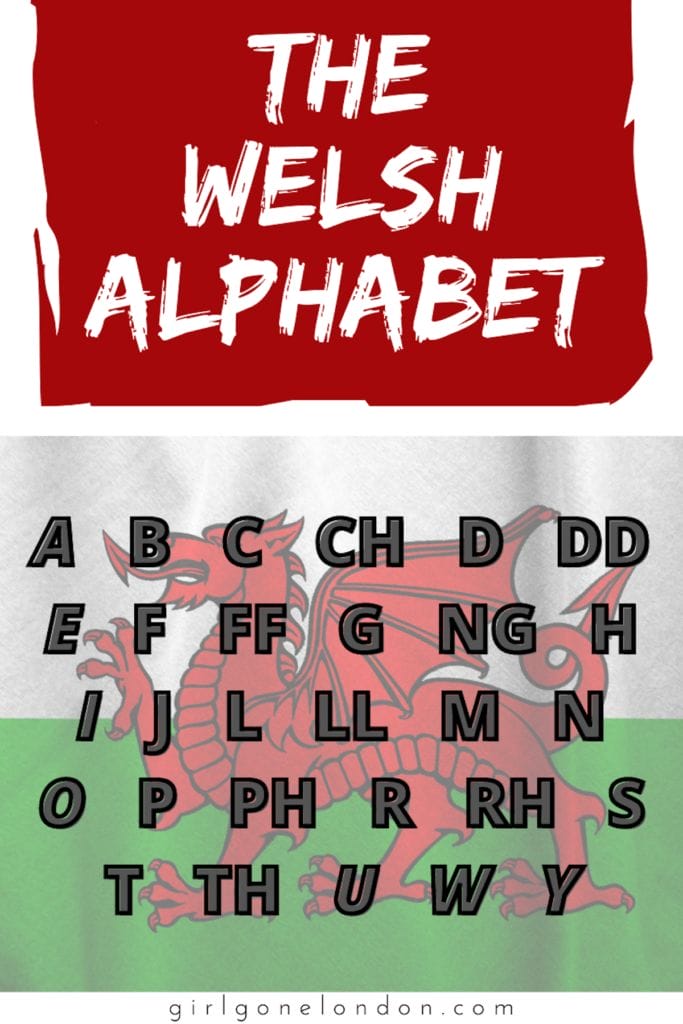
At first glance, Welsh might seem too advanced to learn for beginners.
But once you learn some of the trickier letters, pronunciation isn’t too difficult!
What’s with all those consonants?
Looking at a Welsh phrase like “wrth gwrs” (which means “of course”), you might be thinking, “Where are the vowels?!”
Well, the Welsh alphabet actually uses w and y as vowels!
Let’s take a look at the seven Welsh vowels, and how to pronounce both the short and long forms for each.
| Welsh Vowel | Short Pronunciation | Long Pronunciation |
| a | “ah”(as in the French “á la”) | “aa”(as in the English “calf”) |
| e | “eh” | “ay” |
| i (Note: when placed before another vowel, i acts like the y in “yes”) | “ih” | “ee” |
| o | “awh” | “oh” |
| u | “ih” | “ee” |
| w | “oo”(as in theEnglish “book”) | “ooh”(as in theEnglish “tool”) |
| y | “ih” | “ee” |
Note: In South Wales, i, u, and y are all pronounced the same. But in North Wales, only u and y are the same, and are pronounced differently than i. It’s a very subtle difference that’s difficult to describe over text, so check out this video on Welsh vowels to hear some examples of differences between North and South Welsh pronunciation.
Now, what about some of those tricky Welsh consonants?
Let’s start with the Welsh double L, which doesn’t have an equivalent in English.
How to pronounce the Welsh “LL”
To pronounce the Welsh double L, which is a letter in itself, start as if you’re going to pronounce a typical L, with your tongue at the roof of your mouth. Then, simply blow air out. It sounds a bit like a hiss.
Extra Help! If you’re still not sure about how to pronounce the Welsh double L, check out the helpful YouTube video below by the Learn Welsh Podcast.
Now, you can pronounce some Welsh place names that use the LL, such as the beautiful Welsh coastal town of Llandudno!
How to pronounce the Welsh “CH”
The Welsh ch sounds a bit like clearing the throat. Like the ch in the German “bach”.
How to pronounce the Welsh “DD”
The Welsh dd is like a hard th sound in English, like the th in “this”, rather than the softer sound in “think”.
Example: “sudd”, meaning “juice”, is pronounced like “seethe”.
“F” vs. “FF”
In Welsh, the single consonant f is pronounced like the English v, as in “vase”, and ff is used for the traditional English f sound, as in “father”.
“R” and “RH”
In Welsh, the consonant r is always rolled.
Rh is a consonant similar to r, but is much more aspirated, so you’ll be blowing air out of your mouth as you roll that r sound.
Dive Deeper – To learn more about Welsh pronunciation, check out the Welsh Plus YouTube channel, where they have a playlist on Welsh Pronunciation.
Common Words and Phrases in Welsh
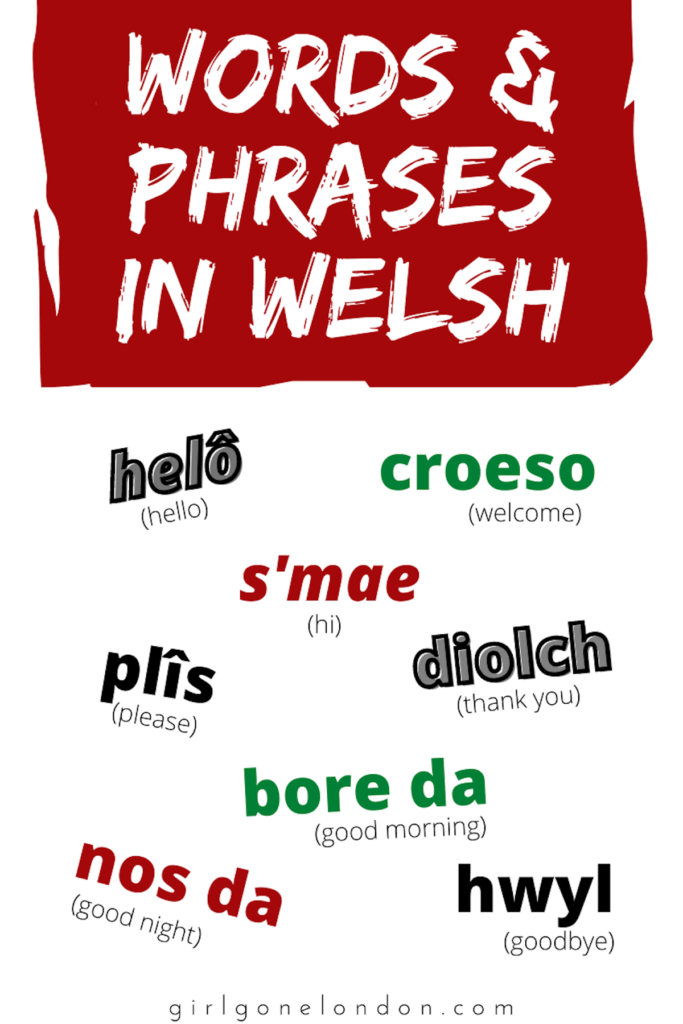
Now that we’ve covered the basics of Welsh pronunciation, let’s try some common Welsh words and phrases like how to say hi in Welsh and common Welsh greetings!
Basic Greetings in Welsh
How to Say “Hello” in Welsh!
So, how DO you say “hello” in Welsh?
Well, there are a few ways.
Helô
Pronounced like the English “hello”, this is an easily recognizable way to greet someone in Welsh.
Su’mae (in the North) or Shwmae (in the South)
Both su’mae (“suh-my”) and shwmae (“shoo-my”), sometimes shortened to just s’mae, are standard greetings in Wales, and are derived from the question, “How are you?”
Croeso
Croeso (“croy-so”) meaning “welcome”, is another way you might be greeted in Welsh.
Good Morning in Welsh
Bore da (“bohr-eh dah”)
Good Afternoon in Welsh
Prynhawn da (“prin-hown da”)
Good Evening in Welsh
Noswaith dda (“nohs-why-th thah”)
How to Say “Goodbye” in Welsh
The standard way to say “goodbye” in Welsh is Hwyl (“hoo-wheel”, said quickly as one syllable), but in the evening, you might instead say Nos da, which means “goodnight”!
Who are you? I am…
To ask someone’s name in Welsh, although it might sound rude in English, you would literally say, “Who are you?”
In South Wales, this would be, “Pwy dych chi?”, while in North Wales, “dych” becomes “dach”.
To answer this question, you can simply say, “Dw i’n …” which means, “I am [your name].”
Example:
Person 1: Croeso! Pwy dach chi? (Welcome! Who are you? [What’s your name?])
Person 2: Helô, dw i’n Tom. Pwy dach chi? (Hello, I’m Tom. [My name is Tom.] Who are you? [What’s your name?])
Person 1: Dw i’n David. (I’m David. [My name is David.])
How are you?
To ask “How are you?” in Welsh, you’ll say, “Sut dych (or dach) chi?”
Some responses might be:
Da iawn, diolch. – Very good, thank you.
Gwych! – Great!
Ddim yn dda iawn. – Not very good.
Wedi blino. – Tired.
Where is… Ble/Lle mae…
To ask where something is, you’ll start with either “Ble” or “Lle” (both are used and understood across Wales), and “mae’r” (which translates to “is the…”) Since that LL consonant can be a little tricky to pronounce, we’ll stick with “Ble” for this post.
Where is the bathroom? – Ble mae’r tŷ bach?
Where is the airport? – Ble mae’r maes awyr?
Where is the bus? – Ble mae’r bws?
Where is the train? – Ble mae’r trên?
Where is the station? – Ble mae’r orsaf?
Where is the hospital? – Ble mae’r ysbyty?
Where is the pub? – Ble mae’r dafarn?
Where is the road? – Ble mae’r ffordd?
Note: If you want to ask where a place or thing is, simply remove the ‘r after “mae”. The ‘r acts as the “the” in the sentence.
Example:
Ble mae’r llyfrgell? – Where is the library?
vs.
Ble mae llyfrgell? – Where is a library?
Please / Thank you
There are a few ways to say “please” in Welsh.
The simplest would be “plîs”, which sounds much like the English equivalent. The other two options are, “Os gwelwch chi’n dda,” and, “Os gweli di’n dda”.
To say “thank you” in Welsh, you would say “diolch”.
Or, if you’re very grateful, you might say “diolch yn fawr iawn”, which means “thank you very much”!
May I have… Ga i…
A common way to ask for something in Welsh is to say, “Ga i…[item], plîs?”
Here are a few things you might ask for, say, in a café or restaurant.
Ga i dŵr? – May I have water?
Ga i llaeth (or llefrith)? – May I have some milk?
Ga i te? – May I have some tea?
Ga i goffi? – May I have a coffee?
Ga i gwrw? – May I have a beer?
Ga i win? – May I have wine?
Ga i gawl? – May I have soup?
Ga i gyri? – May I have curry?
Ga i bysgod a sglodion? – May I have fish and chips?
Ga i’r bil? – May I have the bill?
If you’re ordering more than one thing, you can use the word “a” (“and”) to make a list. “Ga i te, coffi, a llaeth, plîs?”
When is the next (train/bus/plane) to (location)?
Pryd mae’r trên nesaf i Gaerdydd? – When is the next train to Cardiff?
Pryd mae’r bws nesaf i Lundain? – When is the next bus to London?
Pryd mae’r awyren nesaf i Gaeredin? – When is the next plane to Edinburgh?
Welsh Places with both English and Welsh Names
Did you know some cities in Wales have Welsh names as well as English ones? Wales itself is only the English name for the country, which is actually called Cymru in Welsh!
Let’s go over a few place names in Welsh!
| English | Welsh |
| Wales | Cymru |
| Cardiff | Caerdydd |
| Swansea | Abertawe |
| Newport | Casnewydd |
| Cardigan | Aberteifi |
| Carmarthen | Caerfyrddin |
| Snowdonia | Eryri |
| Snowdon | Yr Wyddfa |
Fun Fact! The Welsh name for Snowdon, Yr Wddyfa, translates to “grave”, referencing a legend of a giant named Rhita Gawr, who is said to have been buried at the summit of the mountain after a battle with King Arthur. There is a growing movement in Wales to change the official name from the English Snowdon to the Welsh Yr Wyddfa, to honor the history of the land and the Welsh language.
Other Places and Languages in Welsh
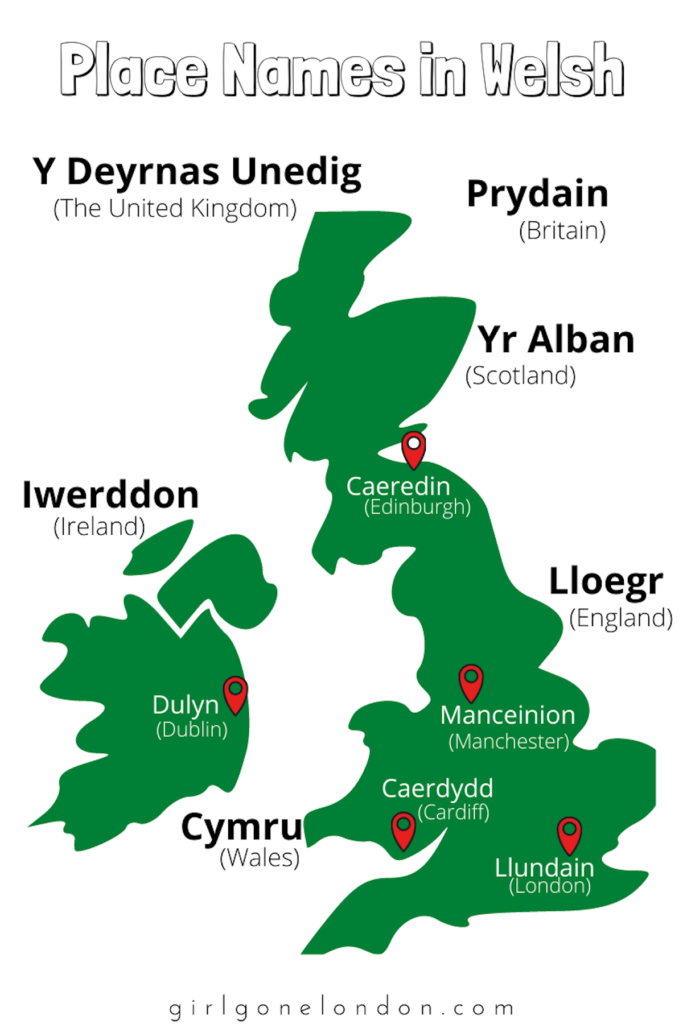
Welsh (Cymraeg) has its own words for different countries and languages. Here are a few examples:
| English | Welsh |
| England | Lloegr |
| English | Saesneg |
| London | Llundain |
| Manchester | Manceinion |
| Britain | Prydain |
| Ireland | Iwerddon |
| Irish | Gwyddeleg |
| Dublin | Dulyn |
| Scotland | Yr Alban |
| Scottish | Albanaidd |
| Edinburgh | Caeredin |
| The United Kingdom | Y Deyrnas Unedig |
| France | Ffrainc |
| Spain | Sbaen |
| Germany | Yr Almaen |
| United States | Yr Unol Daleithiau |
| New York | Efrog Newydd |
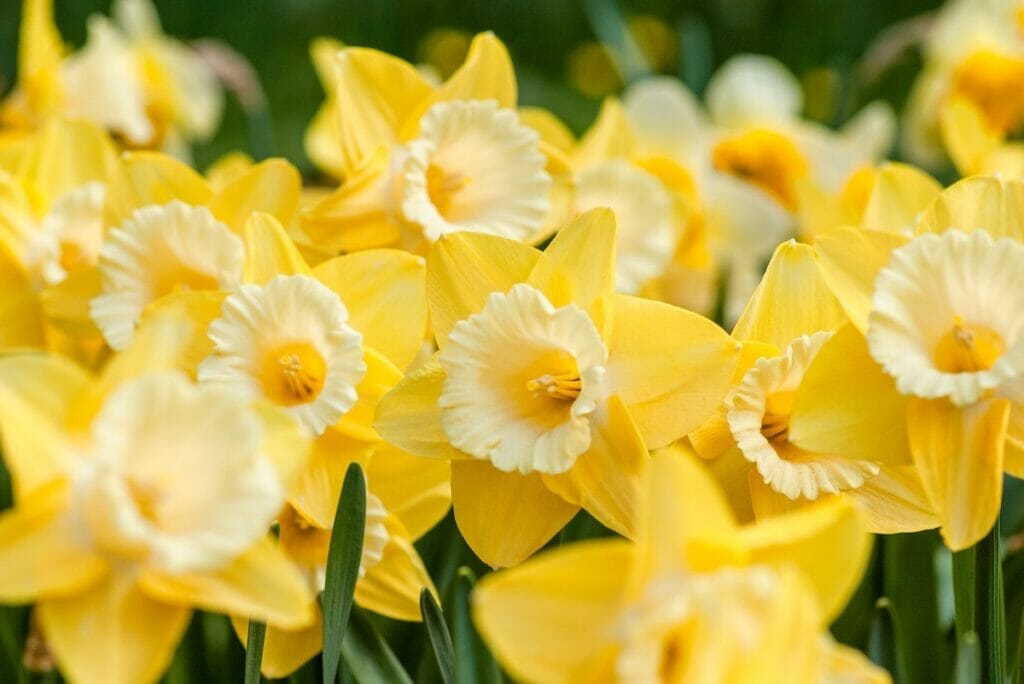
Common Welsh Slang
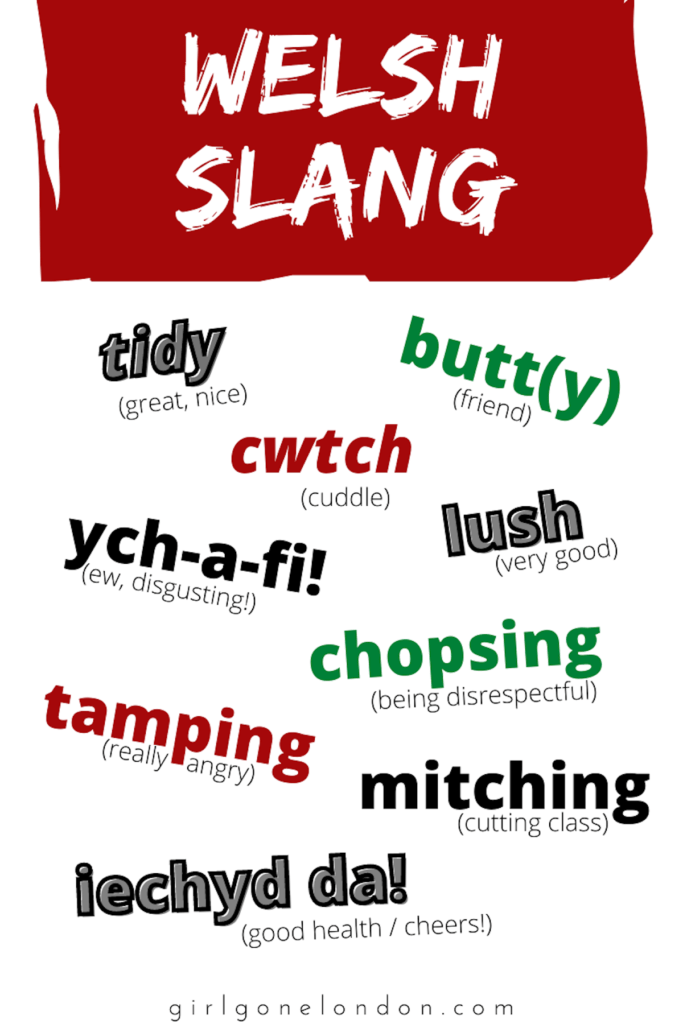
Beyond the intricacies of the Welsh language, there’s also Welsh slang!
Welsh colloquialisms can have origins in either English or Welsh, but even the English-based words and phrases may be unfamiliar to non-Welsh folks.
Here are a few common Welsh slang words and phrases.
Butt / Butty
A friend! Like the English “bud” or “buddy”, if a Welsh person calls you their “butt” or “butty”, it’s a compliment!
By Here / By There
When saying something is in a particular place, it’s not uncommon for Welsh folks to say it’s “over by here”, or “over by there”.
Chopsing / Chopsy
If someone is “chopsing” or being “chopsy”, they’re being argumentative or disrespectful to someone.
Cwtch
Anyone can cuddle, but only the Welsh cwtch.
In Welsh, “cwtch” is a word that doesn’t have an exact English translation.
In its simplest form, it refers to a cuddle or a hug, but it has a bit more depth than that.
It’s a word that evokes a sense of safety and comfort for many Welsh people, who often reserve the word “cwtch” only for those they’re very close to, such as family, dear friends, or romantic partners.
Drive
Your bus driver. Remember to thank them by saying, “Cheers, drive!”
Dwt / Dwtty
Used to refer to someone (often a child) who is little and cute.
Iechyd Da!
Cheers! When a Welsh person says “iechyd da”, they are wishing you good health.
This is a phrase you’re likely to hear when toasting drinks.
Lush
In both British and American English, the word “lush” might be used to describe a lovely green landscape.
In British English, it might mean someone who perhaps drinks a bit too much.
But in Wales, “lush” has come to mean something is very good.
Say you win a prize, or treat yourself to the best-tasting Welshcakes you’ve ever had, or perhaps you go on holiday and see a nice view of the Welsh seaside.
That’s great.
That’s lovely.
That’s lush.
Mitching
Cutting class, skipping school.
In Wales, if someone’s “mitching”, they’re likely choosing to be absent from an obligation without reason.
Now In A Minute
You know when you say you’ll be there in a minute, but you’re actually not quite ready?
Well, the Welsh communicate this by saying they’ll be ready “now in a minute”.
So, it’s not quite immediate, but soon enough!
Tamping / Tamping Mad
If someone’s “tampin’ mad”, you’d better stay out of their way!
“Tamping” is Welsh slang for being really irritated or angry.
Tidy
Rather than “neat”, if a Welsh person describes something as “tidy”, it means they’re pleased with it.
For example, if you greet a Welsh person with the Welsh greeting of “Shwmae”, they might think, “Ah, they’ve bothered to learn some Welsh? Tidy!”
Ych-a-fi
In Welsh, “ych-a-fi” is an interjection used to express disgust. “Yuck!”
Eisiau dysgu Cymraeg? (Want to learn Welsh?)
If you’re interested in learning Welsh and helping to preserve this beautiful, intricate, proud language, you can take the Welsh course on Duolingo (it’s free!), or visit LearnWelsh.cymru for a variety of courses.
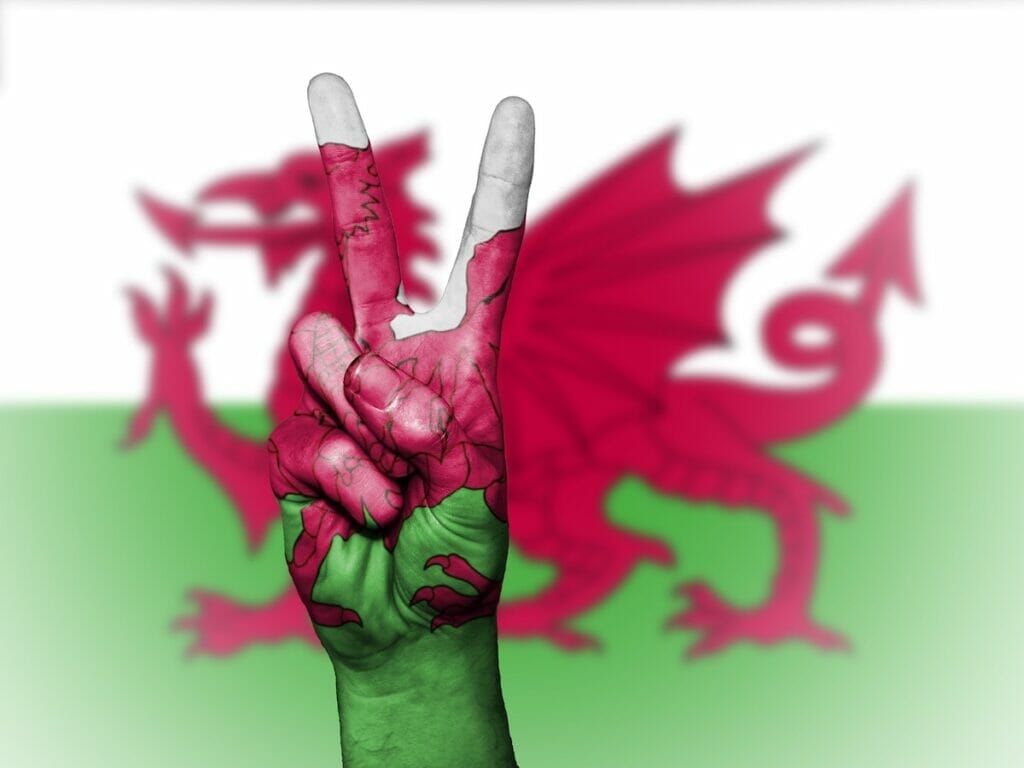
Cymru Am Byth! (Wales Forever!)
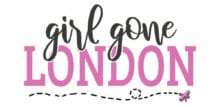
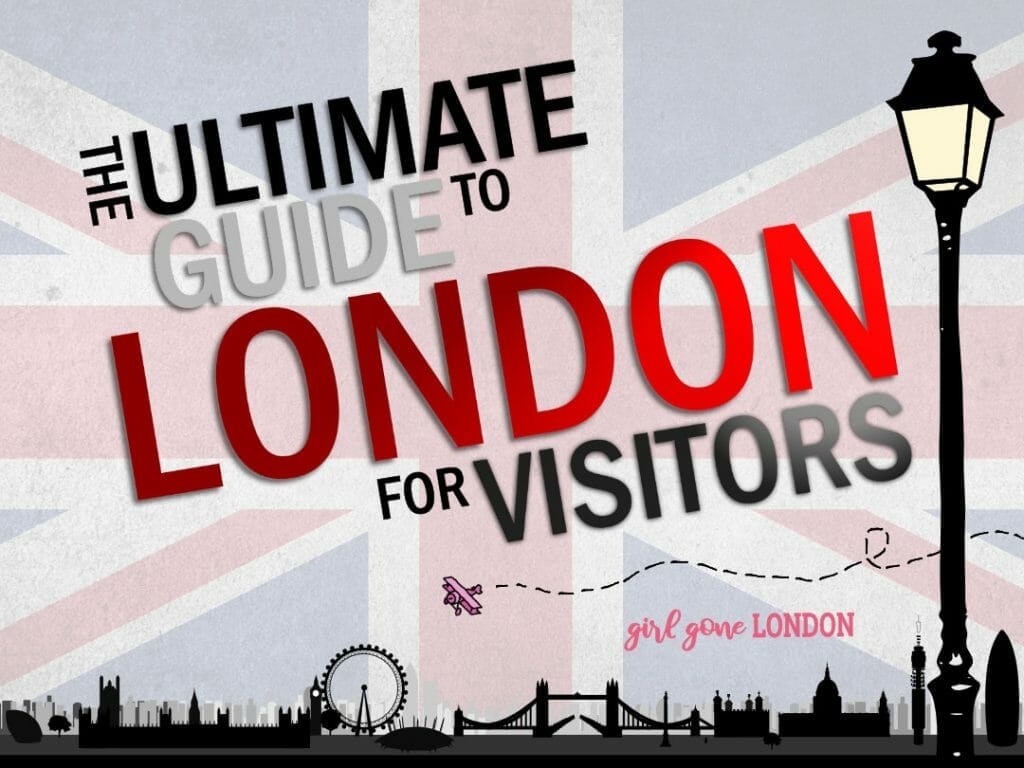
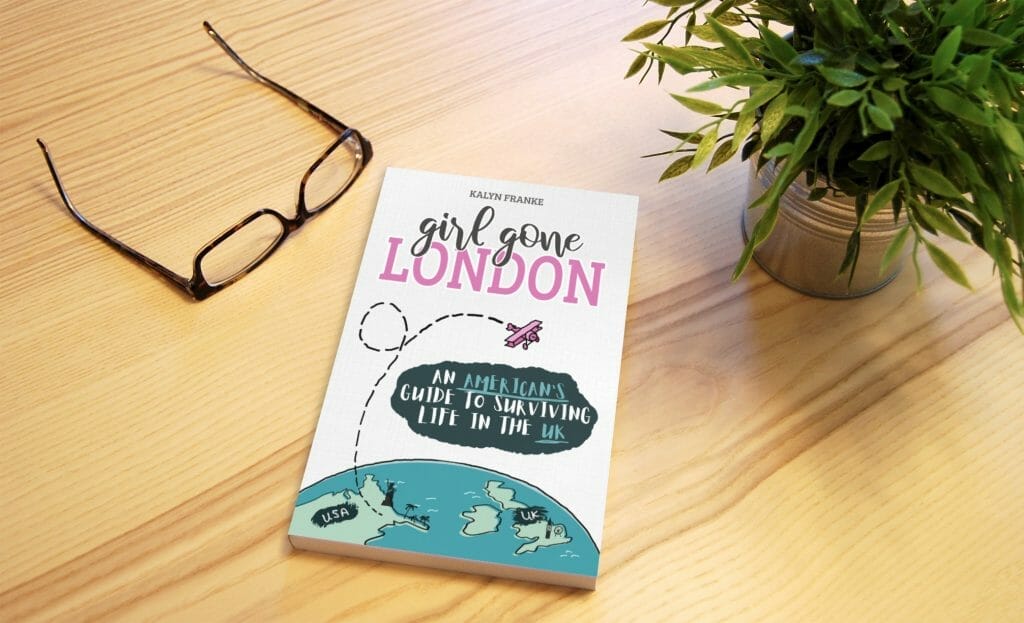
Hello, nice page about Welsh. Diolch! I’m not first language Welsh only a learner but I would say ‘Bev dw i’ not ‘dw i’n Bev’. In Welsh when you’re speaking in the emphatic you put the noun first.